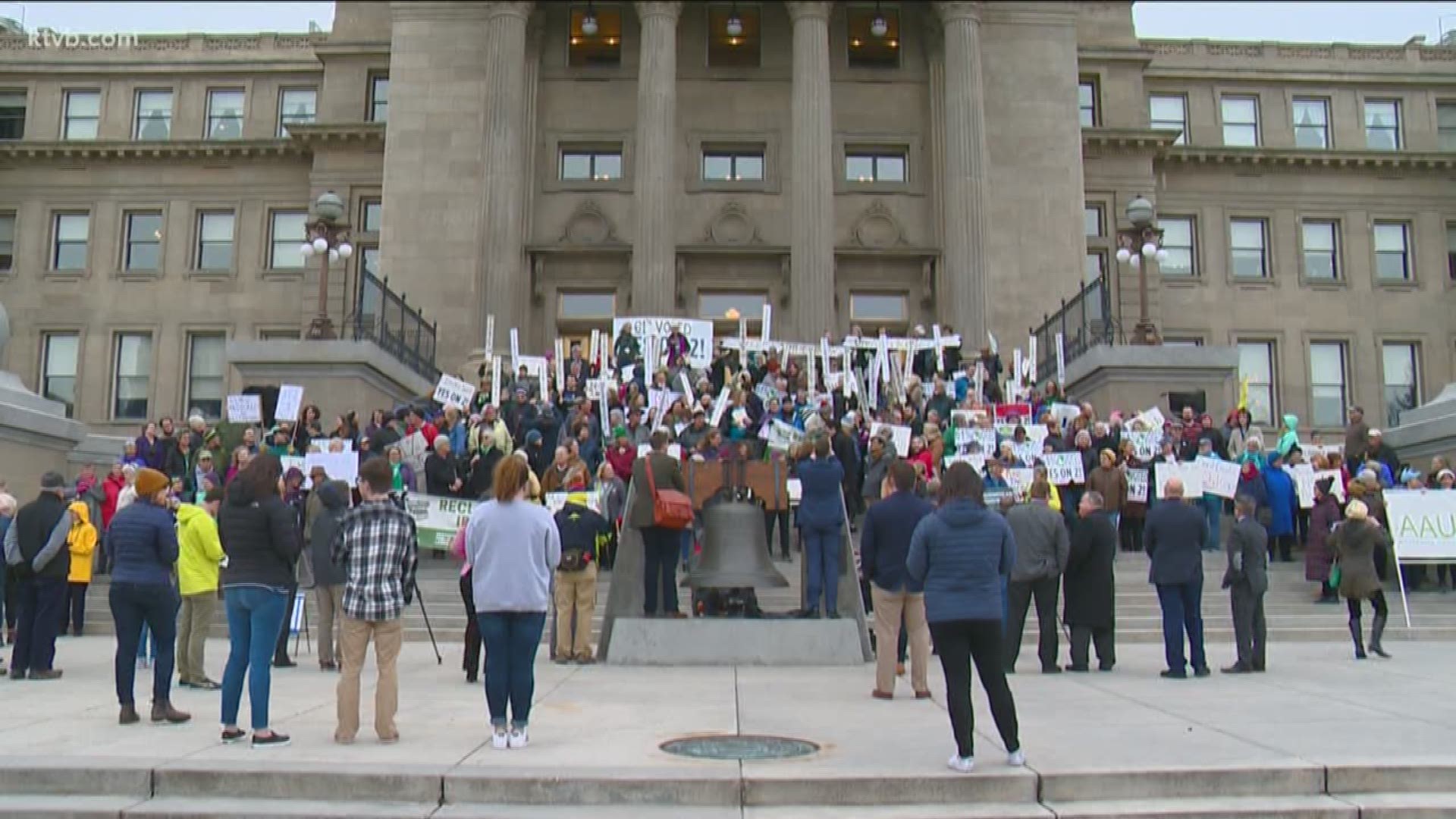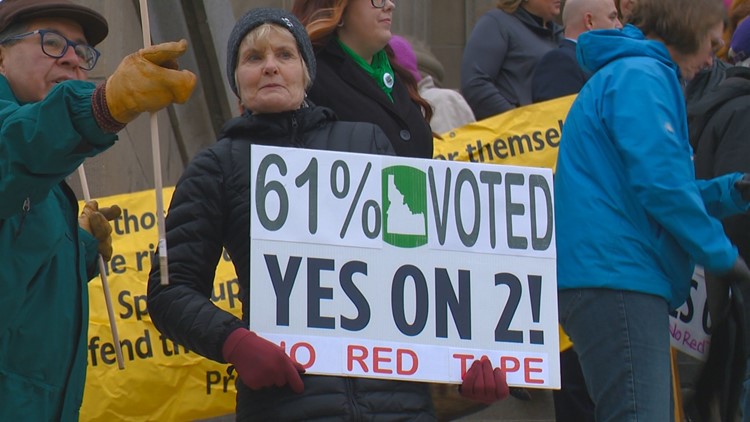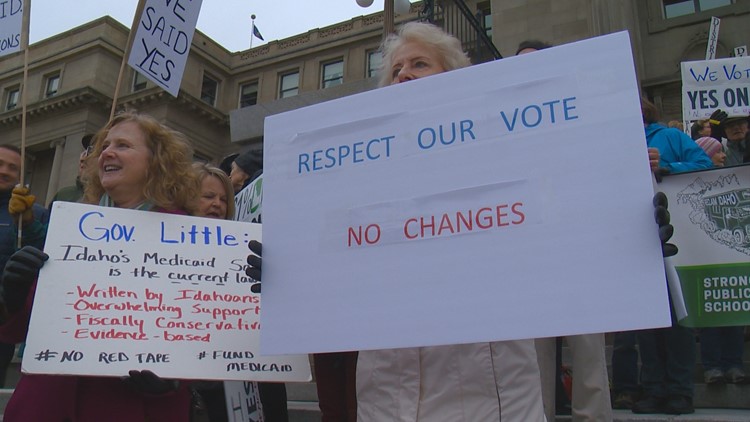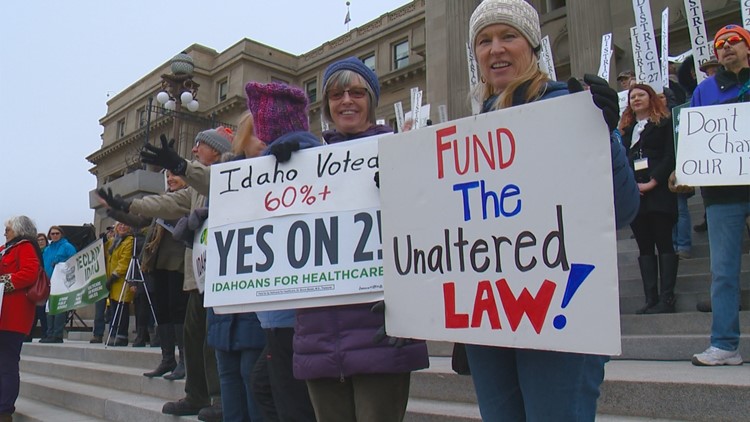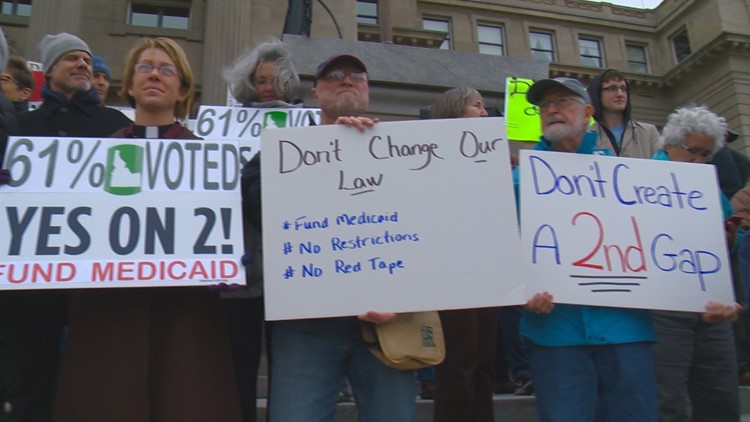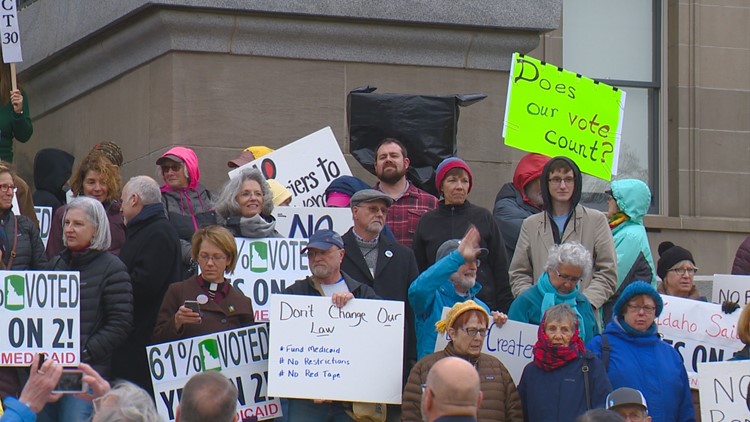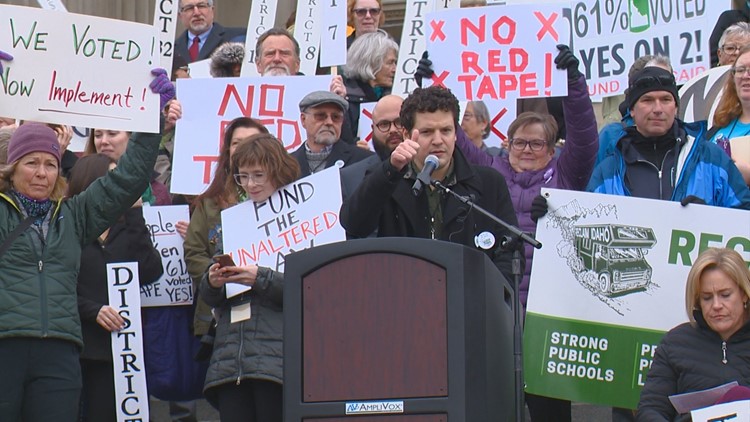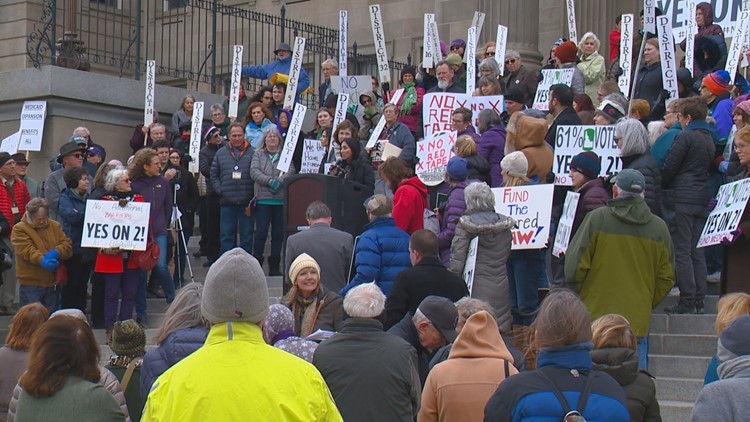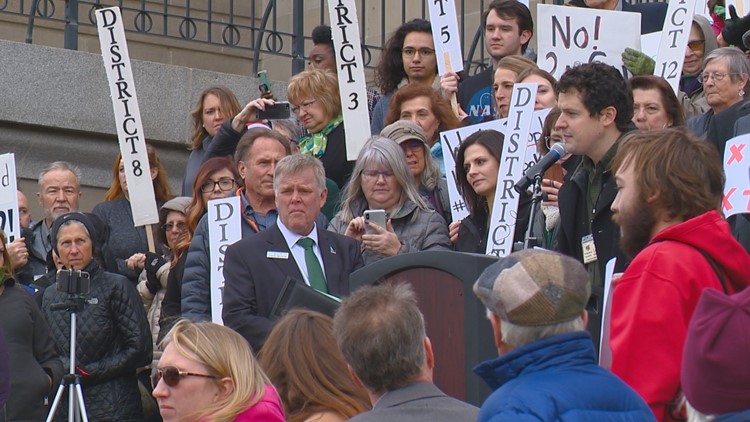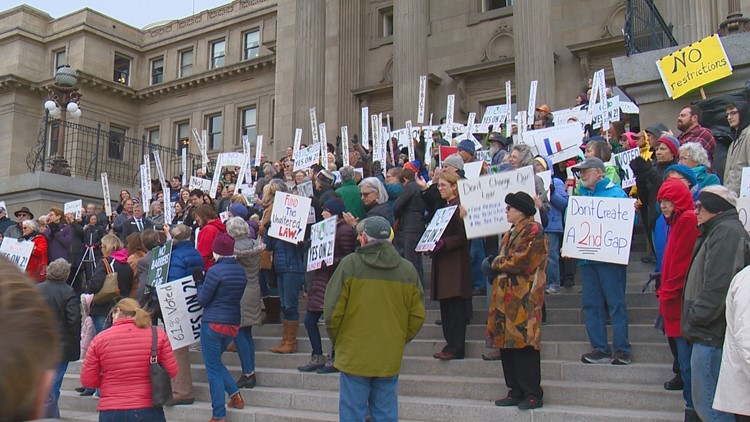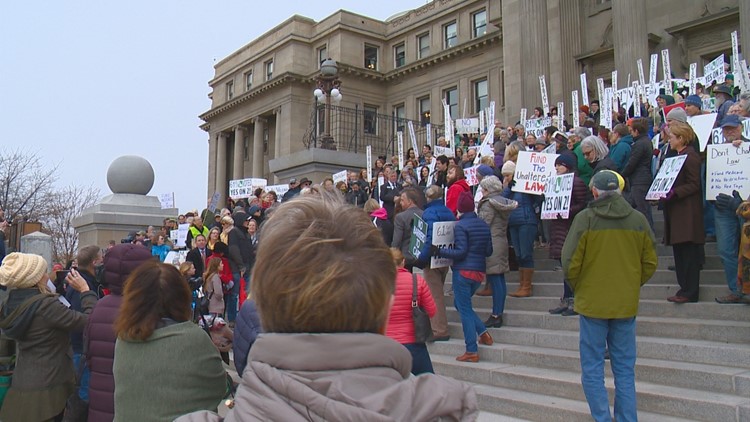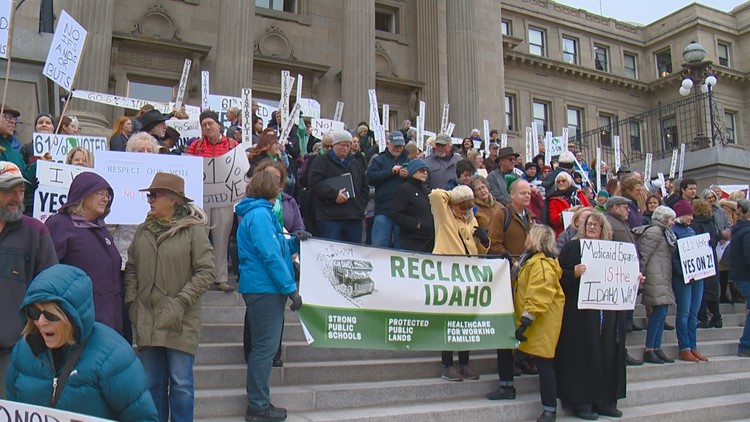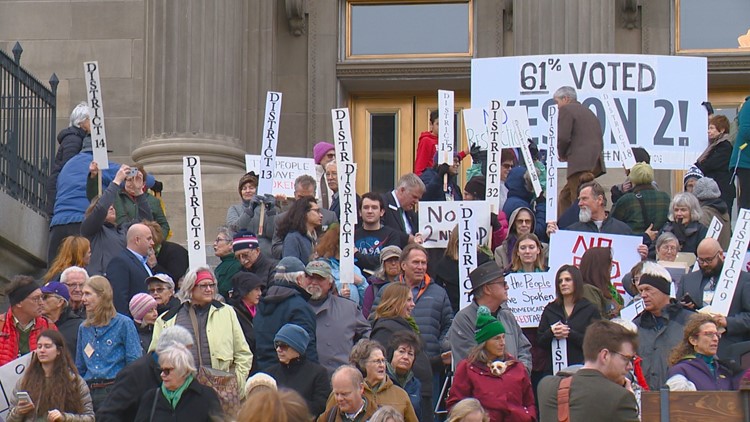BOISE, Idaho — About 300 demonstrators gathered on the Statehouse steps encouraging Idaho lawmakers to approve paying for voter-approved Medicaid expansion without adding work or other requirements.
The crowd shouted "Do your job" on Monday as a series of speakers brought together by an advocacy group called Reclaim Idaho noted 61 percent of voters passed Medicaid expansion in November.
Rally at Idaho Statehouse in support of Medicaid expansion
KTVB spoke with lawmakers and Medicaid advocates to find out why each side is so passionate about this issue.
Marsha Craner took part in the rally because of personal experience. Her son suffers from hemophilia.
“His medicine is very expensive. He used up his lifetime max on our insurance by the time he was 16 and we had trouble finding other insurance because of preexisting conditions. We tried the high-risk pool in Idaho and were rejected because of the expense,” said Craner.
It took three years to get on federal Medicaid. And to do that, he had to be declared disabled, which brings a lot of restrictions, like limiting his work hours.
Craner says the expansion would mean everything to people like her son.
“It would be huge. Right now he’s going to school because that’s something he can do. When he gets out of school he wants to be able to find a career and live like a normal person, so it would just change his whole life,” said Craner.
“I met a woman in October who had just been diagnosed with cancer. She had two young children. She was either going to have to move to Montana or Washington to get treatment or divorce her husband to qualify financially for treatment. Those are the people that this is gonna help,” said Emily Strizich, co-founder of Reclaim Idaho.
“We need to be sympathetic to those situations and try to find out ways to help people improve their own situation so that they’re not as dependent on government and that takes some doing sometimes because these programs are very broad,” said Sen. Pro Tempore Brent Hill.
Lawmakers say they have to consider both sides of the coin.
“Well the problem is I think there are better solutions out there. We did not take advantage of those earlier and so what we have now is the traditional Medicaid expansion as provided for in the ACA,” said Hill.
“What happens somewhere down the road if the federal government changed it from a 90-10 ratio of participation in federal to state dollars to a 70-30? That would be literally hundreds of millions of dollars to the state of Idaho that you’d have to come up with some way. That’s the only part that really bothers me that much about the expansion,” said Senate Assistant Majority Leader Chuck Winder.
Lawmakers want to be clear that they do support the initiative and want it to move forward, staying close to what voters want.
“That’s what we’re looking at now. What’s the best way to fund this without putting a particular burden on the citizens of Idaho? And so it’s not just as easy as letting it become law, we need to find the funds in order to make it effective as well,” said Hill.
“I think it’ll move forward. I personally want to try and get it as close to what the initiative is as possible. That may look a little different than what the people who supported the initiative wants it to be but I’d like to see it get out of here, I’d like to see it get funded, and I don’t think we should wait,” said Winder.
Sen. Hill met with Marsha Craner Monday morning. He says those types of stories do have an impact and lawmakers will make sure to be considerate of situations like that as they continue discussions.
The federal government would cover 90 percent of the estimated $400 million cost of Medicaid expansion, and Idaho lawmakers have to figure out how to pay the state's share. Some lawmakers have suggested adding work or requirements for recipients to be eligible.
The measure directs the state to expand Medicaid eligibility rules to include anyone earning less than 133 percent of the federal poverty level. That will provide access to preventative health care services for about 62,000 low-income Idaho residents.

